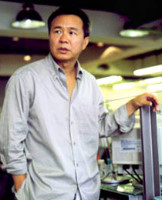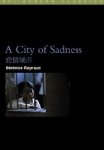 |
 |
Director - Selected filmography and DVDBeaver review links: The Assassin (2015), Flight of the Red Balloon (2007), Three Times (2005), Café Lumière (2003), Millennium Mambo (2001), Flowers of Shanghai (1998), Goodbye South, Goodbye (1996), Good Men, Good Women (1995), The Puppetmaster (1993), City of Sadness (1989), Daughter of the Nile (1987), Dust in the Wind (1986), The Time to Live and the Time to Die (1985), A Summer at Grandpa's (1984), The Sandwich Man (1983), The Boys From Fengkuei (1983), Green, Green Grass of Home (1982), Cute Girl (1980) |
|
|
||
|
Suggested Reading (click cover or title for more info)
A City of Sadness |
Often referred to as one of the greatest living directors, and a key figure in the Taiwanese New Wave, Hou Hsiao-hsien is a giant in the realm of contemporary world cinema. He was born in Guandong Province, China, but like many people at the time he and his family fled to Taiwan to escape the Chinese civil war. This meant Hou was to be raised in a rather tumultuous political environment, something that continues to influence his work to this day. In fact, defining moments in Taiwanese history figure as the subject for just about all his work. Hou's style is frequently described as spare. He favors long-takes, frequently filmed in deep focus, giving a visceral weight to the spaces that his camera captures. Whether he is filming gorgeous landscapes, or framing interiors in a manner that recalls Yasujiro Ozu, Hou has an often novelistic approach to everyday life in Taipei, combined with an elliptical style of editing and repetition that is distinctly his own. The history of Taiwan from the mid-forties into the sixties is a period of tremendous alienation, a country undergoing a crisis of identity. Hou's films have been lauded for the ways in which they explore the existential questions of Taiwan's past. Framing his scenes from afar and often taking a dreamlike approach to lighting, it is easy to see why Hou's films have been seen as a look back; a journey through the historical memory of his country. - Adam Lemke |
|
